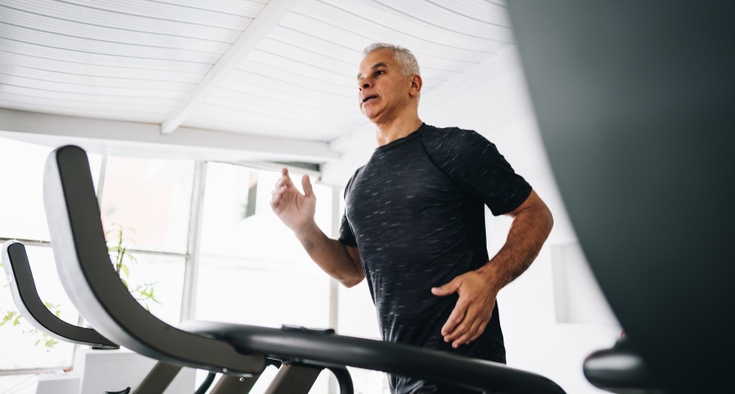When Buddy Coats had his prostate removed three years ago as part of cancer treatment, the Lexington, North Carolina man wasn’t prepared for the emotions that came with urinary incontinence. This side effect of a radical prostatectomy is experienced by about 40% of men whose pelvic floor muscles are weakened.
Each year about 200,000 men in the U.S. are diagnosed with prostate cancer, the second most common cancer among men after non-melanoma skin cancer. And while surgery can extend a patient’s life, it can also degrade the quality.
For Coats, 75, the prostate operation caused involuntary leaking, which was often triggered by a cough or a sneeze. Before long he was changing diapers six times a day. Coats started wearing dark pants, and stopped going to church and driving to visit friends on the coast.
“I became very much a recluse,” said the retired widower. “I wouldn’t even think about dating somebody. I was so paranoid that it would be an embarrassment. I didn’t have a lot of faith in myself to get out and be around people.”
Find the care you deserve.
Options and a solution for incontinence
In 2022, when medication and a minor procedure proved ineffective, urologist Dr. John Wilson of Novant Health Urology - Baldwin referred Coats to Dr. Jack Smith of Novant Health Pelvic Health Center.
Smith explained the treatment options: He could put in an artificial urinary sphincter, but those sometimes require a second operation within five years. He could put in a synthetic sling to better support the urethra and related muscles, but slings carry a risk of infection. The least invasive approach, ProACT, implants balloons where the prostate used to be and, over time, inflates them with saline to control urinary leakage.
“If something goes wrong with an artificial sphincter and it erodes, you have to take every single piece out and leave the patient with a catheter until the sphincter heals,” Smith said. “But if something were to go bad with the ProACT, all you do is deflate the balloon and pull it out.”
Coats worked in healthcare most of his life, much of it in respiratory therapy, and he did his research after that first meeting with Smith.
“Dr. Smith is one of the most personable guys I’ve ever met,” Coats said. “He was like an old friend from the first time I met him. He puts you at a tremendous comfort level and took plenty of time with me to make sure that I understood my options.”
Smith, who joined Novant Health in 2011, is one of only two doctors in North Carolina trained to administer Uromedica’s ProACT. (While the Pelvic Health Center treats men and women, ProACT is approved only for men. ACT, a developing treatment for women, is in clinical trials.)
‘The only problem was patience’
It’s important to know that not every male cancer survivor is a candidate for ProACT, and it does not immediately provide relief.
“It has to be done gradually,” said Smith, who has treated about 30 patients with the device. “I think the biggest frustration is not feeling better after two inflations. I let them know that they’re going to get there; they’ve just got to be patient.”
Follow-up visits to resolve incontinence require as many as five balloon inflations, staggered over several months. Coats underwent the outpatient procedure last year at Novant Health Medical Park Hospital in Winston-Salem. It involved two tiny incisions in the perineum, and no catheter. But the waiting was the hardest part; he wore a pad until the final injection and admits he was impatient with following up every four weeks.
“But by the fifth injection, I was a lot more comfortable going out and being around people,” he said. “Unless I do something really strenuous, like lift something heavy, I don’t have any issue at all.”
The best candidates for ProACT have no radiation exposure, which can weaken the tissue’s elasticity, and are using fewer than five pads a day, Smith said.
Risks include urinary complications and device leakage, though Smith said these are rare and in most cases patients show improvement, with 70% going completely dry.
“ProACT allows a lot of people to go back and do the things they enjoy, like playing golf without having to stop every three holes to change your pad,” he said. “It’s all about trying to increase the patient’s quality of life.”
That has been the case for Coats, who before the procedure couldn’t mow the lawn without stopping several times to run to the bathroom. But within a day of the final balloon inflation, he was almost incontinence-free, and still is.
“ProACT was really a breath of fresh air because I was not expecting to find something that promising,” Coats said. “I’m back to doing anything I want to do.”











